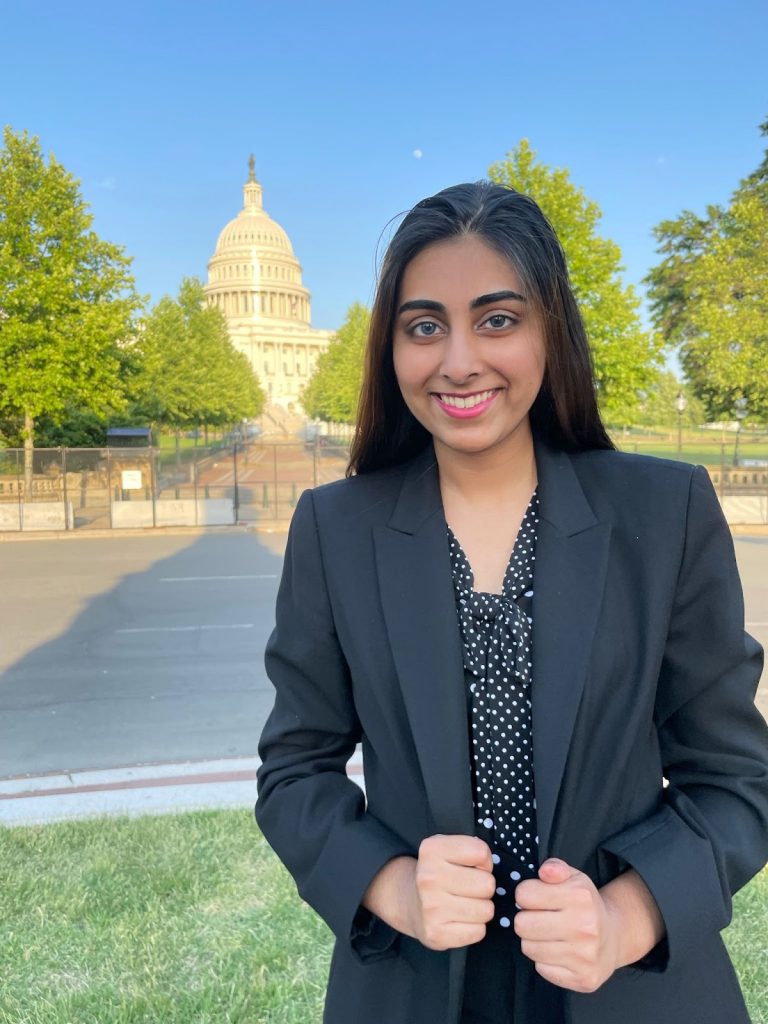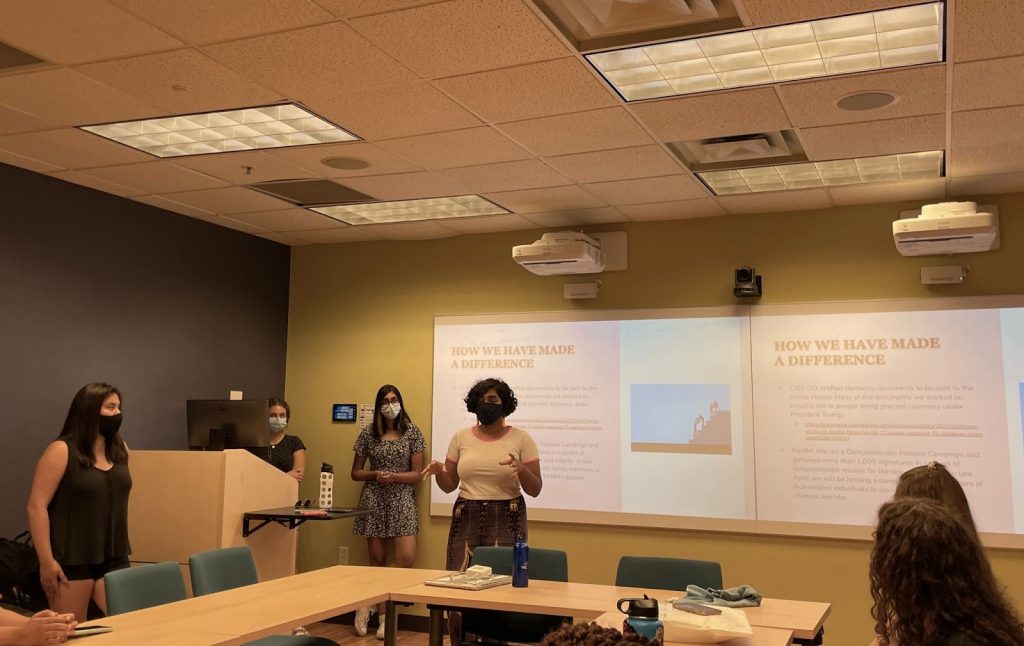In the 100-degree south Florida heat, Shivani Kumar (23C) visited a prison for the first time, witnessing the inhumane prison conditions that would spur her to found a club to fight for justice reform.
Outside the prison, she saw families waiting for hours in direct sunlight to visit their loved ones. Inside, she learned that deadly Legionnaires’ disease prevented inmates from drinking water or showering.
“It was absolutely horrid,” Kumar said. “I looked at these people, and I was like, ‘I can’t just walk away and then go back to my nice life at Emory.’”

Shivani Kumar (23C) founded 4 Justice Emory in the wake of the Black Lives Matter protests of 2020 as a way to take action toward criminal justice reform. (courtesy of Shivani Kumar, 23C)
4 Justice Emory, founded by Kumar in 2020, aims to work toward criminal justice reform by spreading awareness for the issue and collaborating with nonprofit organizations.
In the wake of the 2020 Black Lives Matter protests, Kumar was inspired by poets, musicians and others who used their talents to fight racial injustices, and she wanted to contribute her leadership skills to the cause. So, in the early summer of 2020, Kumar created 4 Justice Emory starting with an Instagram account.
After forming the club’s executive board, Kumar contacted organizations like CAN-DO Clemency — a “non-profit foundation that advocates clemency for all non-violent drug offenders” — and Families Against Mandatory Minimums (FAMM) to facilitate collaboration with 4 Justice.
In the fall of 2020, Co-Vice President of 4 Justice Kheyal Roy-Meighoo (23C) was the leader for a collaborative project with CAN-DO Clemency that reorganized the nonprofit’s website. Her group ensured the consistency of prisoner profiles, consolidated information and identified missing information on the website.
Simultaneously, a second collaborative project with CAN-DO Clemency gathered materials and information to write a proposal for a clemency file. Another checked for grammatical errors and consistency within existing clemency files, Roy-Meighoo said.
At a meeting with CAN-DO Clemency in late 2020, the club worked directly with three incarcerated and formerly incarcerated people to learn about mandatory minimums, which are sentences the court must give to a person convicted of a crime, regardless of the offender or the offense.
“There’s no nuance to understanding what people did and what their actions were,” Roy-Meighoo said. “I think that it was really impactful to hear that.”
The club’s collaborative projects vary in topic and skill level. Secretary Jessica Cruz (23C) said she joined 4 Justice during the early stages of its formation, with no prior knowledge or experience with justice reform.
“I remember [I became interested] during [the] time the Black Lives Matter movement was happening,” Cruz said “So I really thought it was a good time to bring more awareness towards justice reform.”
By the end of the fall semester, the club was able to see some of the incarcerated individuals released, and three people who had recently been granted clemency spoke to the club.

Co-vice President Kheyal Roy-Meighoo (23C) explains 4 Justice Emory’s accomplishments at the club’s first GBM of the semester on Oct. 15. (Courtesy of Oli Turner, 25C)
Within their first year of operation, the club also promoted a Compassionate Release Petition through Twitter and other forms of social media to collect signatures in the spring of 2021. The club was able to collect over 2,000 signatures during the semester.
Roy-Meighoo said the club also held a panel in the spring, which included the current president of FAMM and several contributors affiliated with CAN-DO Clemency.
Following the panel, she and other executive board members received an outpouring of positive feedback.
“I had so many people message me after the event being like, ‘Thank you for this,’ ‘This was so impactful, and I did not know this,’” Roy-Meighoo said. “So I think I would just encourage people to be open to learning about what the problems are, and then that’s how we can reach the solution.”
Roy-Meighoo believes that the fight for justice reform begins with awareness, and 4 Justice strives to call the Emory community’s attention to the issue.
“There [are] just so many issues with how we even view criminality and how we view the criminal justice system and how we view prisons that it really needs to start with that awareness,” Roy-Meighoo said.
Kumar also stresses the urgency of the issue and the importance of 4 Justice Emory, as well as its relevance to the social justice turmoil of the past year.
“It’s so much more than politics or legislation,” Kumar said. “It’s mothers being separated from their children; it’s little kids not knowing where their parents are; it’s people being subjected to solitary confinement. It’s scary, it’s traumatizing and it’s morally wrong. It needs to be fixed, and it hasn’t been fixed yet. That means it’s time for us to step up.”
Oli Turner (she/her) is from Manchester, Massachusetts, majoring in English & Creative Writing and minoring in Rhetoric, Writing, & Information Design. Her work has appeared in Atlanta Magazine, Boston Hassle, and the Manchester Cricket. She co-hosts the Wheel's arts & entertainment podcast, Clifton Culture, which spotlights student artists at Emory. Outside of the Wheel, she serves as Vice President of WMRE, Emory's student-run radio station. When she's not writing, editing, or DJ-ing, you can find her at the nearest DIY show scoping out local live music.


